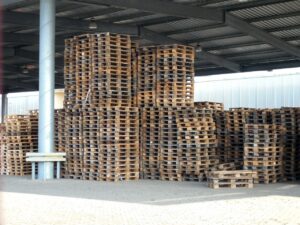As the demand for sustainable and eco-friendly products rises, bamboo has emerged as a popular choice for a wide range of applications, from furniture to construction materials to personal care items. Known for its rapid growth rate, high strength-to-weight ratio, and versatility, bamboo is often touted as an environmentally friendly alternative to traditional materials like wood and plastic. However, with growing popularity comes the need for standardized quality and safety regulations, and this is where ISO (International Organization for Standardization) certification steps in. ISO certification for bamboo products ensures consistency, quality, and global recognition for manufacturers while promoting sustainable practices across the industry.
Why ISO Certification Matters for Bamboo Products
ISO certification provides an internationally recognized standard for product quality, safety, and sustainability. For bamboo products, this certification ensures that manufacturers adhere to stringent guidelines that not only boost product quality but also reduce environmental impact. As the bamboo industry expands globally, ISO certification has become crucial for several reasons:
- Standardization of Quality: Ensures that bamboo products, whether furniture, textiles, or kitchenware, meet consistent quality and safety standards.
- Sustainability Verification: Confirms that bamboo is sourced, processed, and manufactured using environmentally friendly practices.
- Market Access and Competitive Edge: In international trade, ISO-certified products are more likely to be accepted by global markets, providing bamboo manufacturers a competitive advantage.
- Customer Trust and Confidence: Certification reassures consumers that they are purchasing high-quality, safe, and sustainable bamboo products.
Types of ISO Standards Relevant to Bamboo Products
There are several ISO standards that apply directly or indirectly to bamboo products. Here are the most pertinent ones:
- ISO 9001 (Quality Management): This is the most widely used quality management standard, and it’s critical for bamboo product manufacturers. Achieving ISO 9001 certification demonstrates that a company is committed to meeting customer expectations and regulatory requirements. For bamboo, this could involve meeting high standards for product durability, consistency, and quality.
- ISO 14001 (Environmental Management): This standard is essential for companies committed to reducing their environmental impact. Bamboo is celebrated as a sustainable material, but the certification process for ISO 14001 ensures that a company’s sourcing, manufacturing, and disposal processes minimize ecological harm.
- ISO 14067 (Carbon Footprint): Calculating and reporting the carbon footprint of products is increasingly important to environmentally conscious consumers. By certifying under ISO 14067, bamboo companies can provide transparent information about their products’ carbon impact, helping consumers make informed choices.
- ISO 22095 (Chain of Custody for Wood and Wood-based Products): Although this standard is specifically tailored for wood products, it can be applied to bamboo to ensure traceability along the supply chain, from sourcing to finished product. This certification is crucial for companies that want to demonstrate ethical sourcing practices.
Steps to Achieve ISO Certification for Bamboo Products
- Assess the Standards Needed: Bamboo product companies should begin by determining which ISO standards align with their business goals, customer expectations, and regulatory requirements. A consultant or certification body can help identify the most relevant standards, depending on the type of bamboo products being manufactured.
- Prepare and Implement Changes: The company must align its practices with the requirements outlined in the chosen ISO standards. This may involve updating documentation, implementing new quality checks, training employees, and monitoring environmental impact metrics.
- Internal Auditing: Before applying for certification, it’s crucial to conduct an internal audit to identify any areas that need improvement. This step helps ensure that all processes meet the ISO requirements.
- Apply for Certification: A company applies for certification through an accredited ISO certification body. The certifying body will conduct an audit, reviewing the company’s processes, documentation, and adherence to the standards.
- Continuous Improvement and Recertification: ISO certification is not a one-time achievement. Regular audits are necessary to ensure continued compliance and improvement. This ongoing commitment helps the company stay competitive and uphold quality and environmental standards.
Benefits of ISO Certification for Bamboo Manufacturers
- Enhanced Product Quality and Consistency: ISO standards require rigorous quality checks, which help bamboo manufacturers produce items that are durable, safe, and well-made. This consistency fosters brand loyalty and customer satisfaction.
- Global Market Access: ISO-certified bamboo products are more likely to be accepted in international markets, where consumers and regulatory bodies recognize the ISO mark as a standard of excellence.
- Reduced Environmental Impact: Through environmental standards, ISO certification encourages manufacturers to implement green practices, like reducing waste, optimizing resources, and minimizing energy use. This aligns with the eco-friendly image of bamboo and strengthens a brand’s commitment to sustainability.
- Increased Operational Efficiency: ISO standards often lead to more efficient processes, reducing waste, increasing productivity, and enhancing overall operational efficiency. This, in turn, leads to cost savings.
- Higher Consumer Confidence: ISO certification reassures customers that they’re purchasing safe, responsibly made, and high-quality products. For bamboo, a material often marketed as sustainable, certification adds credibility to these claims.
Challenges and Considerations in Obtaining ISO Certification
While ISO certification offers numerous benefits, it requires investment in terms of time, money, and effort. The certification process can be costly, especially for small and medium-sized enterprises. Implementing the required changes and maintaining standards also involves training employees and possibly revamping manufacturing processes. Additionally, because bamboo is a relatively new material in some sectors, companies may face unique challenges, such as lack of specific ISO guidelines for bamboo, requiring them to interpret general standards (such as those for wood products) for their bamboo operations.
ISO certification is a valuable step for any bamboo product manufacturer committed to quality, sustainability, and international growth. As the global market for eco-friendly products continues to expand, certification not only enhances brand reputation but also fosters trust among consumers and business partners. With the right preparation and a commitment to quality and environmental stewardship, ISO certification can propel bamboo products into the mainstream, supporting a greener and more sustainable future for everyone.






